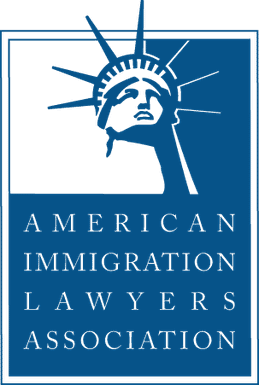On September 5, 2017, the US Citizenship & Immigration Services issued a memorandum that terminates the DACA program. In the memorandum, the USCIS also stated that it is no longer accepting new applications for DACA status, and laid out its key decision-making processes as it winds down the program.
Background
DACA stands for Deferred Action for Childhood Arrivals. The program was created in 2012 to provide certain illegal aliens who entered the United States before the age of 16 a period of deferred action (as regards prosecution for entering and staying in the country illegally). These young people have been referred to colloquially in the mainstream press as “dreamers”. The DACA program also created eligibility for those who met requirements to request employment authorization.
Two years later, in 2014, the DAPA program was established. It extended DACA to create deferred action for the parents of children who are Americans and lawful permanent residents.
DAPA was challenged in the courts and its demise began with these legal tussles over its lack of congressional approval. Led by Texas, states threatened to amend their legal success on DAPA (at the 5th Circuit court level which was affirmed by the Supreme Court in a tie vote) to include DACA too. The response by USCIS was its rescission of DACA in September 2017 based on recommendations by the Attorney-General that DACA was pure executive action at work and had was unconstitutional as it was not enacted by Congress. This decision was bolstered by the Department of Homeland Security’s own decision to terminate DAPA in June 2017.
Winding Down Period (9.5.17 to 3.5.18)
The USCIS, as winds down the program, has provided a limited window in which it will adjudicate certain requests for DACA and associated applications meeting certain parameters specified below:
- Will adjudicate—on an individual, case-by-case basis—properly filed pending DACA initial requests and associated applications for Employment Authorization Documents that have been accepted by the Department as of the date of this memorandum.
- Will reject all DACA initial requests and associated applications for Employment Authorization Documents filed after the date of this memorandum.
- Will adjudicate—on an individual, case by case basis—properly filed pending DACA renewal requests and associated applications for Employment Authorization Documents from current beneficiaries that have been accepted by the Department as of the date of this memorandum, and from current beneficiaries whose benefits will expire between the date of this memorandum and March 5, 2018 that have been accepted by the Department as of October 5, 2017.
- Will reject all DACA renewal requests and associated applications for Employment Authorization Documents filed outside of the parameters specified above.
- Will not terminate the grants of previously issued deferred action or revoke Employment Authorization Documents solely based on the directives in this memorandum for the remaining duration of their validity periods.
- Will not approve any new Form I-131 applications for advance parole under standards associated with the DACA program, although it will generally honor the stated validity period for previously approved applications for advance parole.
- Will administratively close all pending Form I-131 applications for advance parole filed under standards associated with the DACA program, and will refund all associated fees.
- Will continue to exercise its discretionary authority to terminate or deny deferred action at any time when immigration officials determine termination or denial of deferred action is appropriate.
Oct 5, 2017 Deadline To Apply For 2-year Renewal
There is a crucial October 5, 2017 deadline. Anyone who has status under DACA that will expire between now and March 5, 2018 is eligible to apply for a final two-year renewal. USCIS will not accept DACA Renewal Applications after October 5, 2017.
The USCIS and other agencies and departments whose mandates touch on immigration issues are clearly serious about putting an end to DACA and any programs that emanated from it. If you are unsure about your immigration status, talk to an attorney who specializes in immigration law as you may have other options for legal residency that you may not be aware of.
Update as of January 2, 2018:
The USCIS website states that it is no longer accepting initial or renewal requests for DACA. It will, however, consider DACA requests received from residents of the U.S. Virgin Islands and Puerto Rico on a case-by-case basis. The USCIS is also no longer approving advance parole requests associated with DACA. For those who are current DACA recipients whose still-valid EAD (Employment Authorization Documentation) has been lost, stolen or destroyed, requests for a replacement EAD can still be made by filing a new Form I-765.
On January 2, 2018, USCIS’ Acting Press Secretary tweeted that “Of the ~154,000 persons with DACA whose deferred action is set to expire on-or-before 3/5, more than 118,000 (77%) have been granted renewal by USCIS. Almost 15,000 more (10%) have renewal pending. Roughly 21,000 (13%) have no renewal pending at this time.” While outcomes remain uncertain, there are indications of bipartisan efforts in Congress to provide a permanent solution to the status of those affected by the rescission of DACA and DAPA.
. . . . .





